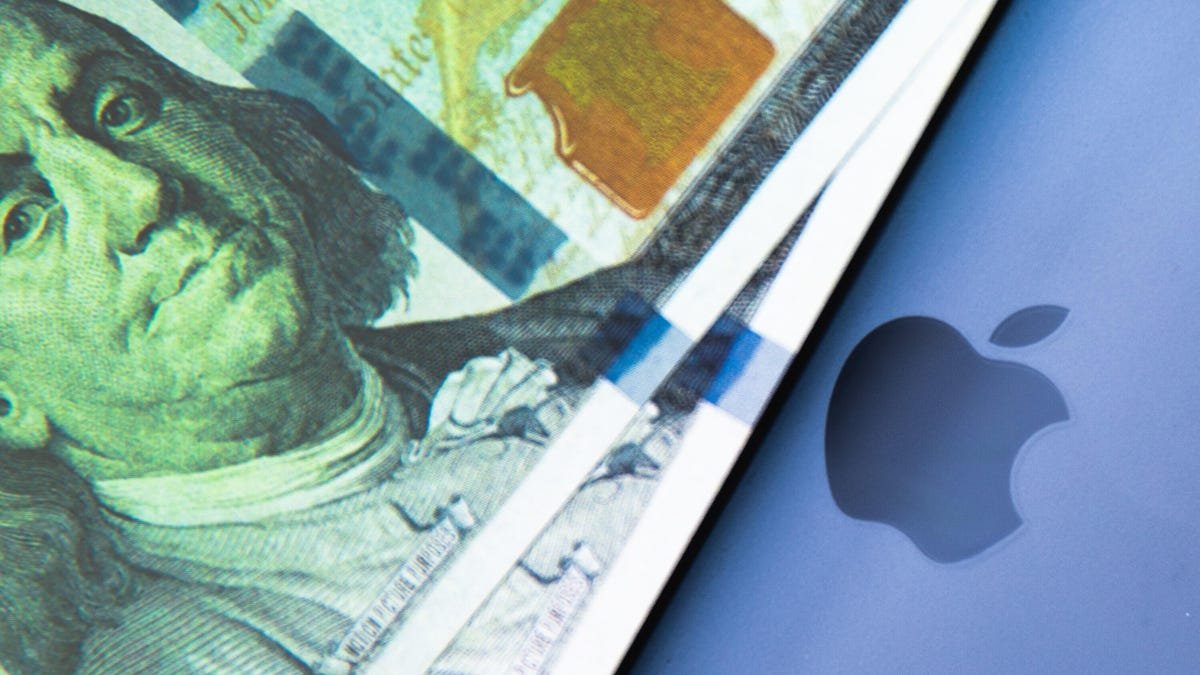| Current price | China (125%) | Other country (10%) |
|---|
| iPhone 15 (128GB) | $699 | $1,573 | $769 |
|---|
| iPhone 15 Plus (128GB) | $799 | $1,798 | $879 |
|---|
| iPhone 16e (128GB) | $599 | $1,348 | $659 |
|---|
| iPhone 16 (128GB) | $799 | $1,798 | $879 |
|---|
| iPhone 16 Plus (128GB) | $899 | $2,023 | $989 |
|---|
| iPhone 16 Pro (128GB) | $999 | $2,248 | $1,099 |
|---|
| iPhone 16 Pro Max (256GB) | $1,199 | $2,698 | $1,319 |
|---|
| iPhone 16 Pro Max (1TB) | $1,599 | $3,598 | $1,759 |
|---|
But there’s a lot more that goes into the price of an iPhone than simply where it’s manufactured. Apple sources components for its products from a long list of countries, which could face higher tariffs after the pause. And a tariff on goods doesn’t necessarily mean prices will go up by the same amount. If companies want to stay competitive, they could absorb some of the costs to keep their prices lower.
“It won’t be as high as one-to-one in terms of the tariff increases,” said Ryan Reith, group vice president for IDC’s Worldwide Device Tracker suite, which includes mobile phones, tablets and wearables. “The math isn’t as clear cut as that on the tariffs.”
Will other tech products also see price hikes?
Smartphones aren’t the only devices expected to increase prices because of tariffs. Best Buy and Target warned consumers last month to expect higher prices for everything after the latest round of tariffs went into effect. February’s tariff hike had already prompted Acer to announce that it was raising prices on its laptops.
Apple announced a $100 price cut on its new MacBook Air last month, a day after the last round of tariffs took effect. In what was widely viewed as an attempt to persuade Trump to “carve out” an exemption from the latest tariffs, Apple announced in February that it would spend more than $500 billion in the next four years to expand manufacturing operations in the US.
“They already committed $500 billion to US manufacturing, and there was no carve out for Apple,” Patti Brennan, a certified financial planner and CEO of Key Financial, said in an email. “Expect the prices to double for their products.”
However, regardless of the exact amount, expect tariffs on goods from China and other countries to translate into higher prices for consumers. That means the tech you use daily, like imported smartphones, tablets, laptops, TVs and kitchen appliances, could get even more expensive this year.
What’s going on with tariffs?
Trump announced a 10% baseline tariff on all imports plus “reciprocal tariffs” on imports from more than 180 countries on April 2, which he dubbed “Liberation Day.” He’s long touted tariffs as a way to even the trade deficit and raise revenue to offset tax cuts, although many economists say that tariffs could lead to higher prices and may end up hurting the US economy. Stock prices plummeted after Trump’s announcement as markets reacted poorly to the sweeping tariffs.
Trump has taken an especially hard stance on China, which was already subject to tariffs that Trump ordered during his first term in office. He started in February, imposing 20% in tariffs, then announced last week a 34% tariff on goods from China. Earlier this week, he added another 50% tariff before landing yesterday on the 125% tariff against China. China has responded with its own tariffs after each of Trump’s announcements.
Tariffs, in theory, are designed to financially impact other countries because their goods are being taxed. Tariffs are paid by the US company importing the product, and this upcharge is usually — but not always — passed on to the consumer in the form of higher prices.
Should you buy tech now to avoid tariffs later?
If you were planning to buy a new iPhone, gaming console, MacBook or other tech, buying it now could save you money.
But if you don’t have the cash on hand and need to use a credit card or buy now, pay later plan just to avoid tariffs, experts say to make sure you have the money to cover the costs before you start accruing interest. With credit cards’ average interest rates currently more than 20%, the cost of financing a big purchase could quickly wipe out any savings you’d get by buying before prices go up because of tariffs.
“If you finance this expense on a credit card and can’t pay it off in full in one to two months, you’ll likely end up paying way more than a tariff would cost you,” said Alaina Fingal, an accountant, founder of The Organized Money and a CNET Money Expert Review Board member. “I would recommend that you pause on any big purchases until the economy is more stable.”
One way to save on Apple products, even if prices go up, is to buy last year’s model instead of the newest release or a used one.
“Apple has leaned into that with its Certified Refurbished program, much like the auto industry’s used car model,” Hudicka said. “This program helps extend the lifespan of devices, keeping customers in the Apple ecosystem longer while distributing the cost impact over time.”
(function() {
window.zdconsent = window.zdconsent || {run:[],cmd:[],useractioncomplete:[],analytics:[],functional:[],social:[]};
window.zdconsent.cmd = window.zdconsent.cmd || [];
window.zdconsent.cmd.push(function() {
!function(f,b,e,v,n,t,s)
{if(f.fbq)return;n=f.fbq=function(){n.callMethod?
n.callMethod.apply(n,arguments):n.queue.push(arguments)};
if(!f._fbq)f._fbq=n;n.push=n;n.loaded=!0;n.version=’2.0′;
n.queue=[];t=b.createElement(e);t.async=!0;
t.src=v;s=b.getElementsByTagName(e)[0];
s.parentNode.insertBefore(t,s)}(window, document,’script’,
‘https://connect.facebook.net/en_US/fbevents.js’);
fbq(‘set’, ‘autoConfig’, false, ‘789754228632403’);
fbq(‘init’, ‘789754228632403’);
});
})();


